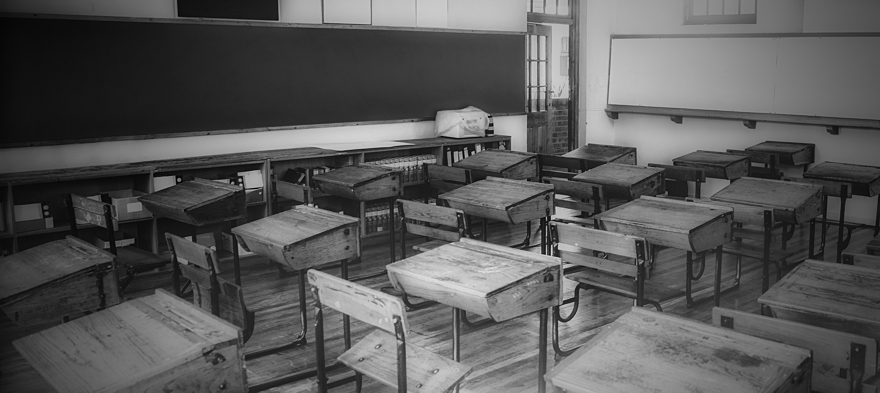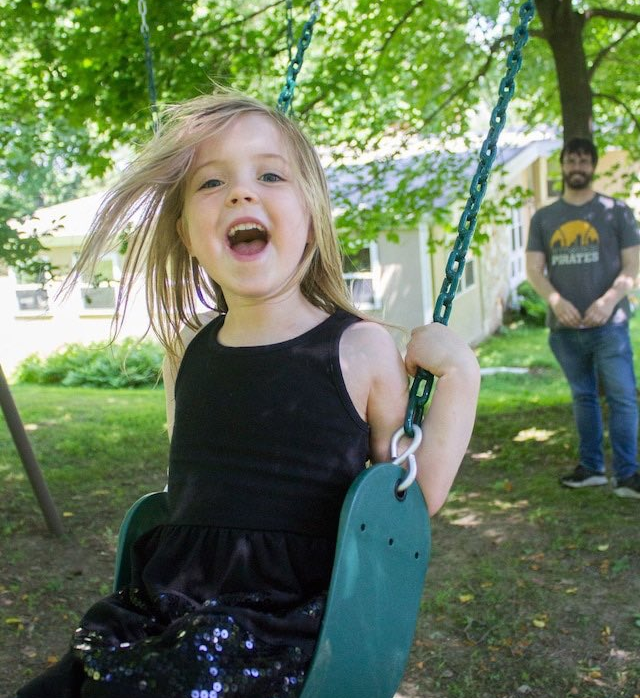
Aug 3, 2020 12:00:00 AM
Cheltenham School District just released a letter to the community confirming that after months of internal and external discussions, surveys of stakeholders, and feedback from the board, this fall will be an all virtual education experience for the roughly 4,500 students it serves.
This is the right decision. It’s the right decision for the students, parents, teachers, and broader community who could have been killed by a choice to re-open schools too soon. I’m proud of the district for making this recommendation, and I expect to be proud of the board for approving it tonight, August 3rd.
But it is also a tragic decision, and I am in mourning for our nation’s kids.
My daughter was so joyful about the concept of starting kindergarten. She is ready to learn, to make friends, to discover new perspectives, to solve problems, play games, navigate social adversity and practice kindness.
I was excited for her. For the stomach butterflies of the first week of school that I can only vaguely remember. Backpacks, lunch boxes and fresh boxes of crayons. The lifelong friendships that she won’t get to kick off yet, the connections with teachers and staff, the playground scrapes and bumps, the chance to learn and create every single day, the adventure of life away from parents.

I hope that the class of 2033 will still get some of those things in their first year, but I am confident that any ounce of meaning from remote education for elementary, special education, and frankly any student is going to rely on extensive adaptation and effort from parents.
Many families will not adapt.
This situation will inevitably expand the chasm of inequalities—particularly racial inequality—that exist across the country and are alive and well at Cheltenham. I am left indignant about the fact that so many districts like ours are being told to figure it out on our own, and left without the resources to provide support to families that need it most.
I am left indignant about the fact that so many districts like ours are being told to figure it out on our own.
As my wife and I think about creative solutions for our daughter’s first year of school, I recognize the deep perversion of the situation.
I am a school director serving on a public school board. I have committed countless hours working towards a system that promises academic justice for all students. The elusive dream of an equitable public school system that meets the needs of all students without relying on private resources.
Yet I am in a position where I am forced to rely on my privilege and personal resources, creating a safety net of tools and adult supervision in order to support a virtual public school kindergarten experience. This is the opposite of educational justice.
[pullquote]This failure cannot be blamed on an individual school district[/pullquote], which is almost certainly doing the absolute best it can with the hand it was dealt. This is a failure of the United States of America.
It is a failure of the cowards who still refuse to face the pandemic and get it under control, the powerful who have refused to address systemic racism for generations, and the short sighted who consistently refuse to appropriately fund public education.
I am furious at state legislatures, our nation’s Congresspeople, President Trump, and Secretary DeVos who regularly use their positions to perpetuate ignorance. I am unforgiving of the voters who have mired themselves in blatant propaganda and allowed themselves to become blind to flagrant and consistent abandonment of responsibility to the well being of our children.
I’m sure that districts will continue to do everything they can to meet needs without driving their districts and communities to bankruptcy, but public education requires a historic re-investment to succeed.
[pullquote position="right"]We are at the precipice of a moral failure.[/pullquote]
Contact your local school board and demand policies that will provide a safe and effective education for families who cannot afford to stay home with their five year olds, or whose children simply are not able to learn online. Try to learn about their constraints and participate in the processes for identifying local solutions.
Contact the people who represent you in your state. Demand that they work to meet the needs of their districts without modifying the rules to allow the most vulnerable to be left behind.
Contact the people who represent you in Congress. Demand that they include proper funding for public schools as part of the next COVID-19 stimulus package.
As you look for solutions for your family, try to work with your local school district to systematize those solutions so they are available to other families.
Do not give up on public education. Do not form habits that remove you from reliance on public education.
A friend recently published a powerful essay in Esquire about COVID-19 with young children: Why Parents Are Lying to Their Kids About COVID-19 Realities.
The people who failed to manage this crisis demand foolhardy and dangerous plans to reopen schools, couched in language about doing what’s right “for the children.” The right thing for children has never once been on their minds. They will not do the one thing that will help: aggressively manage this crisis and this virus. And they will forget our children the moment they’re no longer a useful cudgel. The meaningful work to actually support them—to ensure that they have safe homes and are properly fed, have healthcare and good schools, that opportunity is equal and not simply the outcome of location and generational wealth—will not get done.
This excerpt serves as a reminder that COVID-19 was predictable and mitigable. So too are the structural inequalities that COVID-19 exacerbates.
We are about to see a particularly devastating illustration of those structural inequalities. Another predictable item in a predictable list. We cannot let this prediction turn into fate.
Lisa Hollenbach is Senior Digital Manager for Education Post. Prior to joining Education Post, Lisa developed digital and content strategy for Teaching Channel. She served on the Bill and Melinda Gates Teacher Advisory Council from 2014-2017 and was active in the planning and execution of several Elevating and Celebrating Effective Teachers and Teaching (ECET2) convenings at both the regional and national level. Lisa attended both private and public schools in Pennsylvania. She is a graduate of the Pennsylvania State University and holds a bachelor’s in secondary education social studies, a bachelor’s in public policy, a minor in women's studies and a master’s in community psychology and social change. A former educator, Lisa taught for more than 15 years in both traditional public school and public charter school settings. She also served as a leader of her local and regional teachers association from 2001-2016. Lisa has worked with several universities throughout her career and is currently an adjunct professor at the Pennsylvania State University, teaching courses in sociology, psychology, education and their intersections. She is passionate about helping education advocates share their stories and creating an equitable education system that serves all students.
Few issues in education spark more tension and debate than standardized testing. Are they a tool for equity or a burden on students? A necessary check on school systems or a flawed measure of...
Charter schools are public schools with a purpose. Operating independently from traditional school districts, they're tuition-free, open to all students, and publicly funded—but with more flexibility...
Despite the benefits of a diverse teaching force, prospective teachers of color fall out of our leaky preparation pipeline at every stage: preparation, hiring, induction, and retention. Here’s what...
Ed Post is the flagship website platform of brightbeam, a 501(c3) network of education activists and influencers demanding a better education and a brighter future for every child.
© 2020-2025 brightbeam. All rights reserved.
Leave a Comment